The Winnipeg Jets snagged an additional first-round pick this week in the 2022 NHL Entry Draft. Thanks to the New York Rangers advancing to the Eastern Conference Final, the conditional 2022 second-rounder the Jets received in the Andrew Copp trade back in March became a first-rounder. (Copp playing in at least half of the Rangers’ games over the first two rounds was another condition that was met.)
Related: Copp Trade Looking Better for Jets Thanks to Rangers’ Playoff Success
In addition to his own first-rounder (14th overall,) Jets’ GM Kevin Cheveldayoff will have a pick somewhere between 29th and 32nd overall, depending on where the Rangers end up.
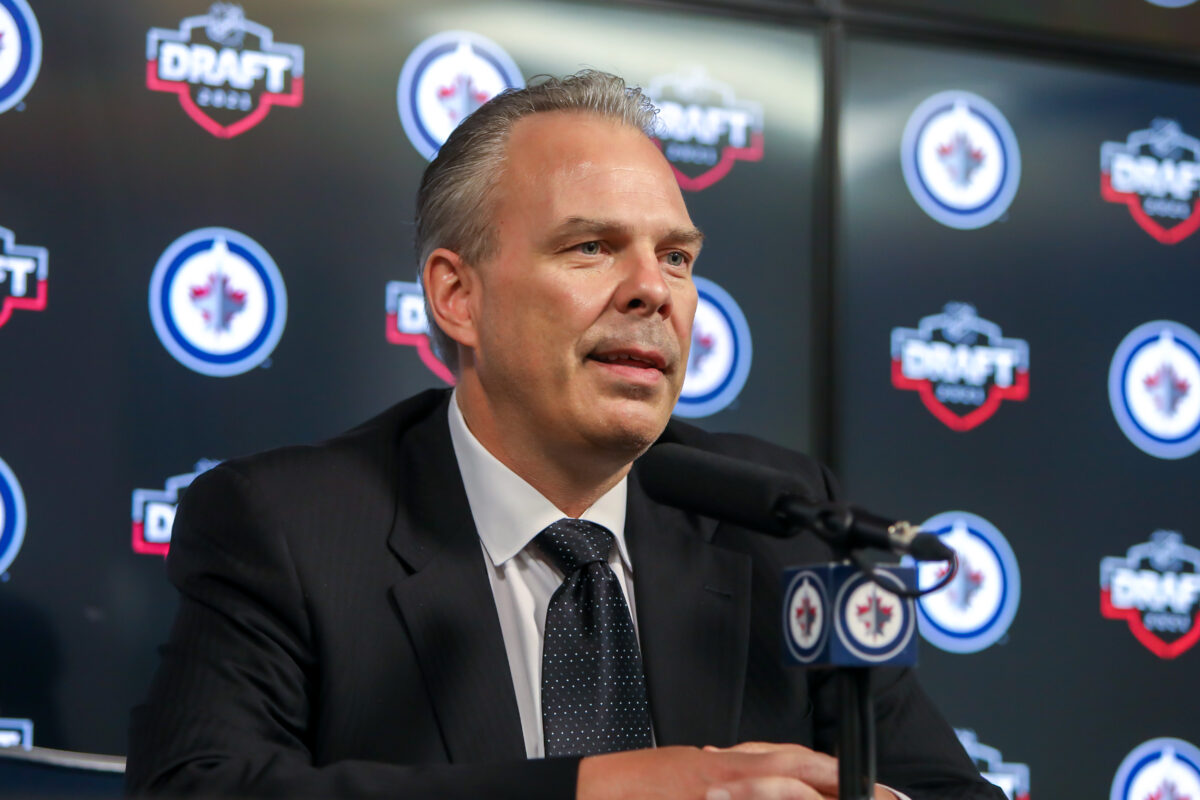
There’s a possibility Cheveldayoff will consider trading one or both picks. When it comes to late-first round picks, he’s had some hits, but more misses.
For this article’s sake, a late first-round pick will be classified as one after 15th overall — Cheveldayoff’s made six such picks since relocation from Atlanta in 2011. 202118th-overall selection Chaz Lucius won’t be included in this analysis, as it’s too early to make a judgement on whether he’ll pan out.
The Late-First-Round Hits
The biggest fish Cheveldayoff has reeled in during the second half of the first round is Kyle Connor, who was selected 17th overall in 2015. The Boston Bruins inexplicably passed on the sniper with three consecutive picks, 13th through 15th overall, as did the Islanders with the 16th pick
Connor has blossomed into one of the NHL’s elite snipers, with 178 goals and 344 points in 384 games through six seasons. The 25-year-old set career highs in goals (47) and points (93) in 2021-22 and led the Jets in both categories.
Related: Winnipeg Jets 2021-22 Report Cards: Kyle Connor
Another player who seems to be a hit is Ville Heinola, selected 20th overall in 2019. The slick Finnish defenseman has yet to crack the Jets full time and some would argue that the biggest thing that’s prevented him from doing so has been the old regime’s veteran bias.
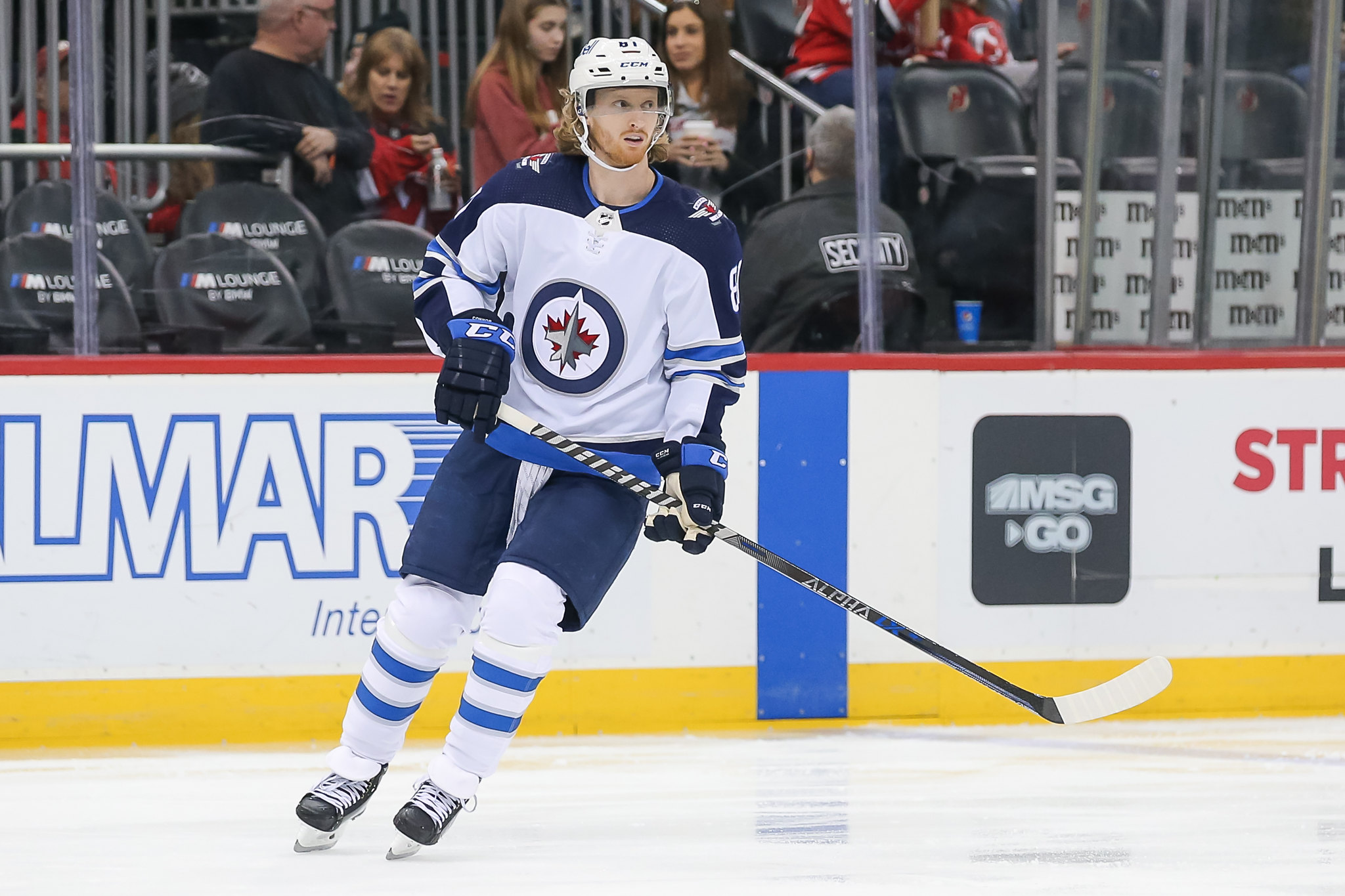
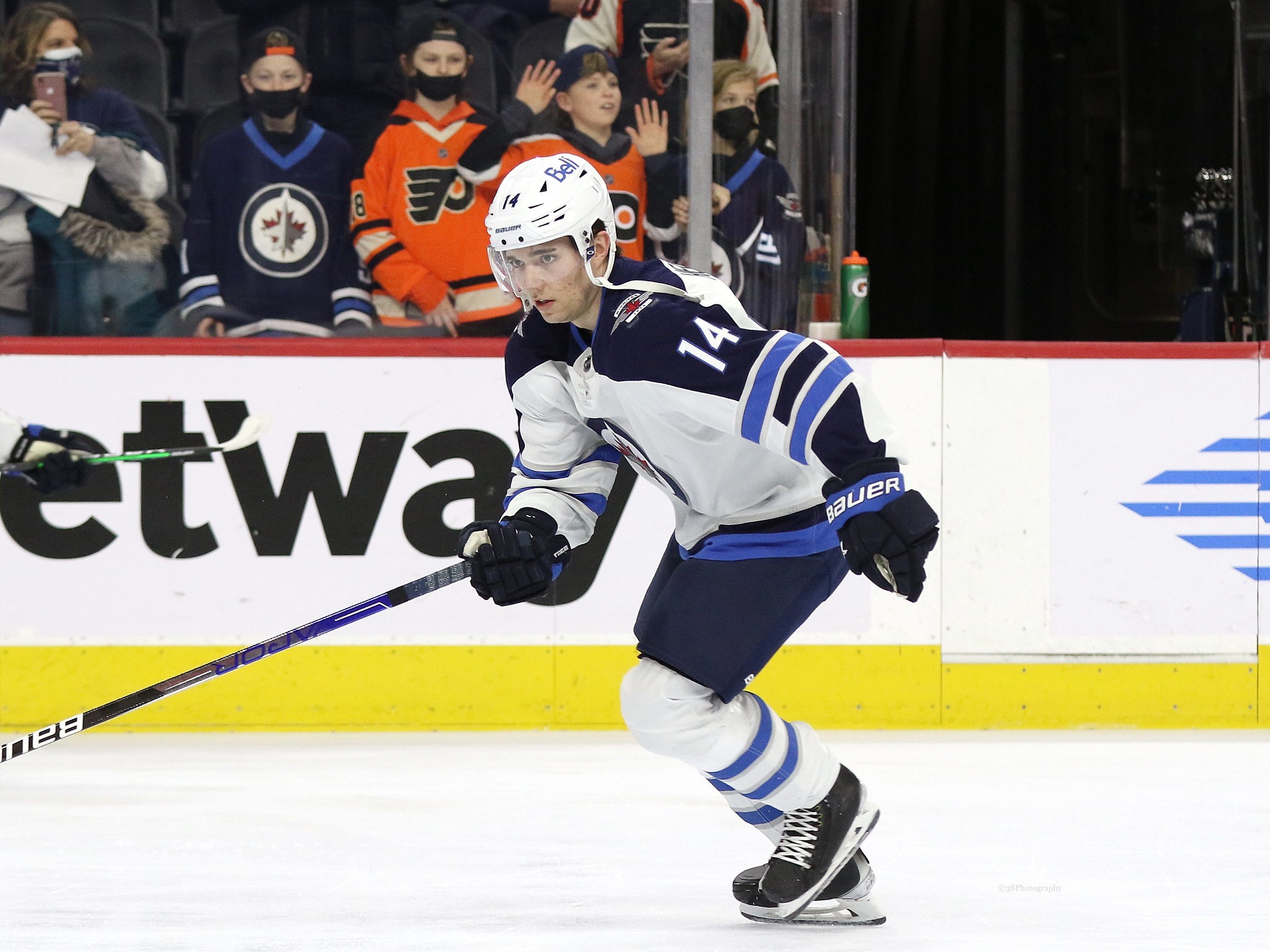
That aside, the 21 year old had an excellent 2021-22 with the Manitoba Moose, recording five goals and 21 assists with a plus-seven rating in 41 games, and one goal and five assists in five Calder Cup Playoff games. He also played 12 games for the Jets, recording five assists, and should challenge for full-time work next season.
The Late-First-Round Misses
The biggest late-first-round miss — and the most disappointing draft pick of the Jets’ 2.0 era so far — is Kristian Vesalainen. The 24th-overall selection in 2017 was touted as a potential game-breaker with a ton of offensive skill, but never found his footing with the Jets.
Recording just five points in 70 NHL games and displaying very little urgency, the Finn fell out of favour and recently signed a one-year contract with the Swedish Hockey League’s Malmo Red Wings. As a restricted free agent, if the Jets tender him a qualifying offer, they’ll retain his rights if he wants to return to the NHL.
Related: Jets & Former 1st-Rounder Vesalainen Part Ways After Lacklustre Tenure
Another miss came a year earlier with Logan Stanley. Chosen 18th overall, the Stanley pick was widely seen as a reach and a case of Cheveldayoff valuing size over skill.
The pick doesn’t look much better six years later; the 6-foot-7, 230-pound defenceman’s first foray into the NHL, in the shortened 2020-21 season, was good as he established himself as a viable third-pairing option. He was even protected over Dylan DeMelo in the 2021 Expansion Draft.
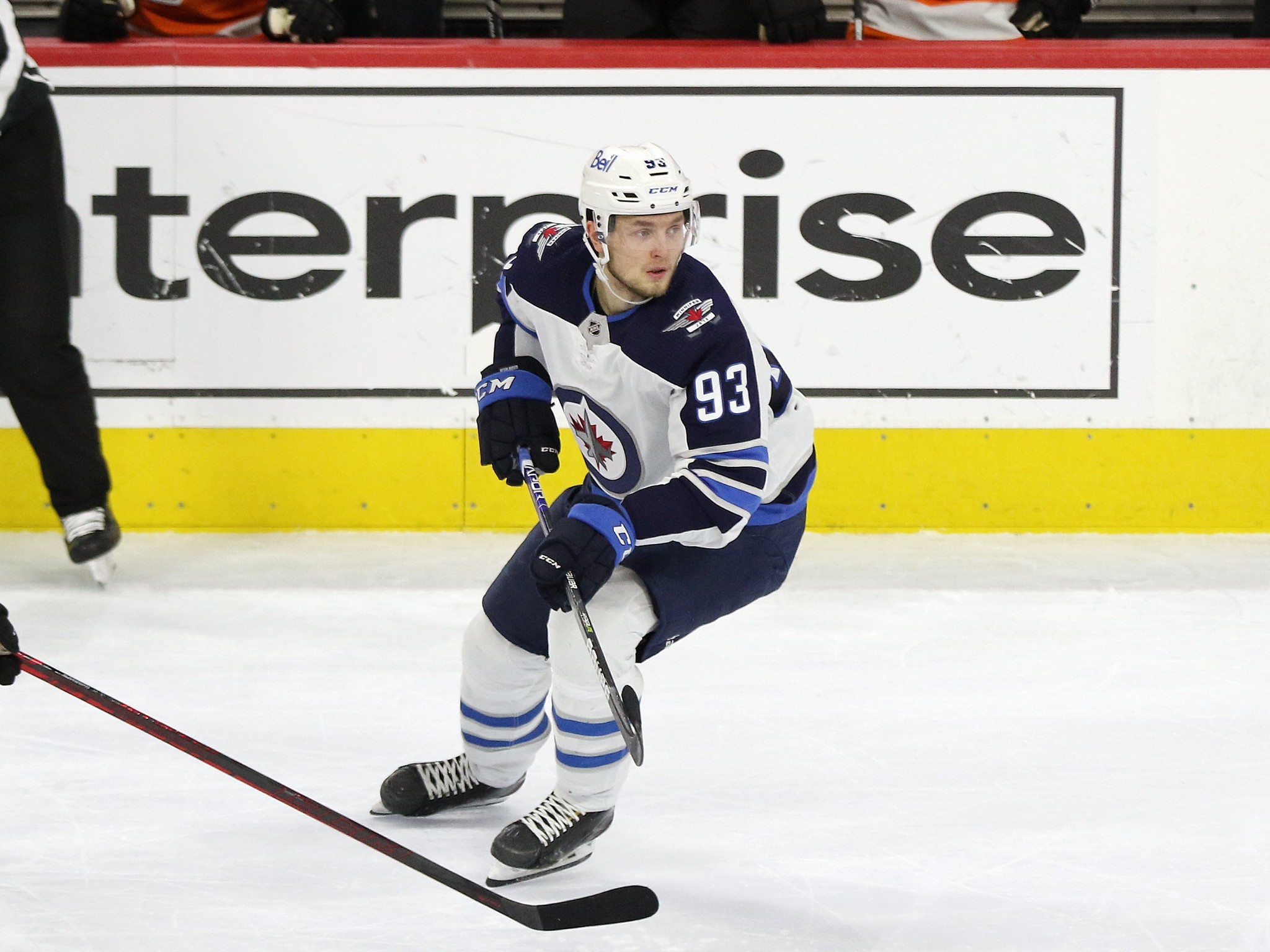
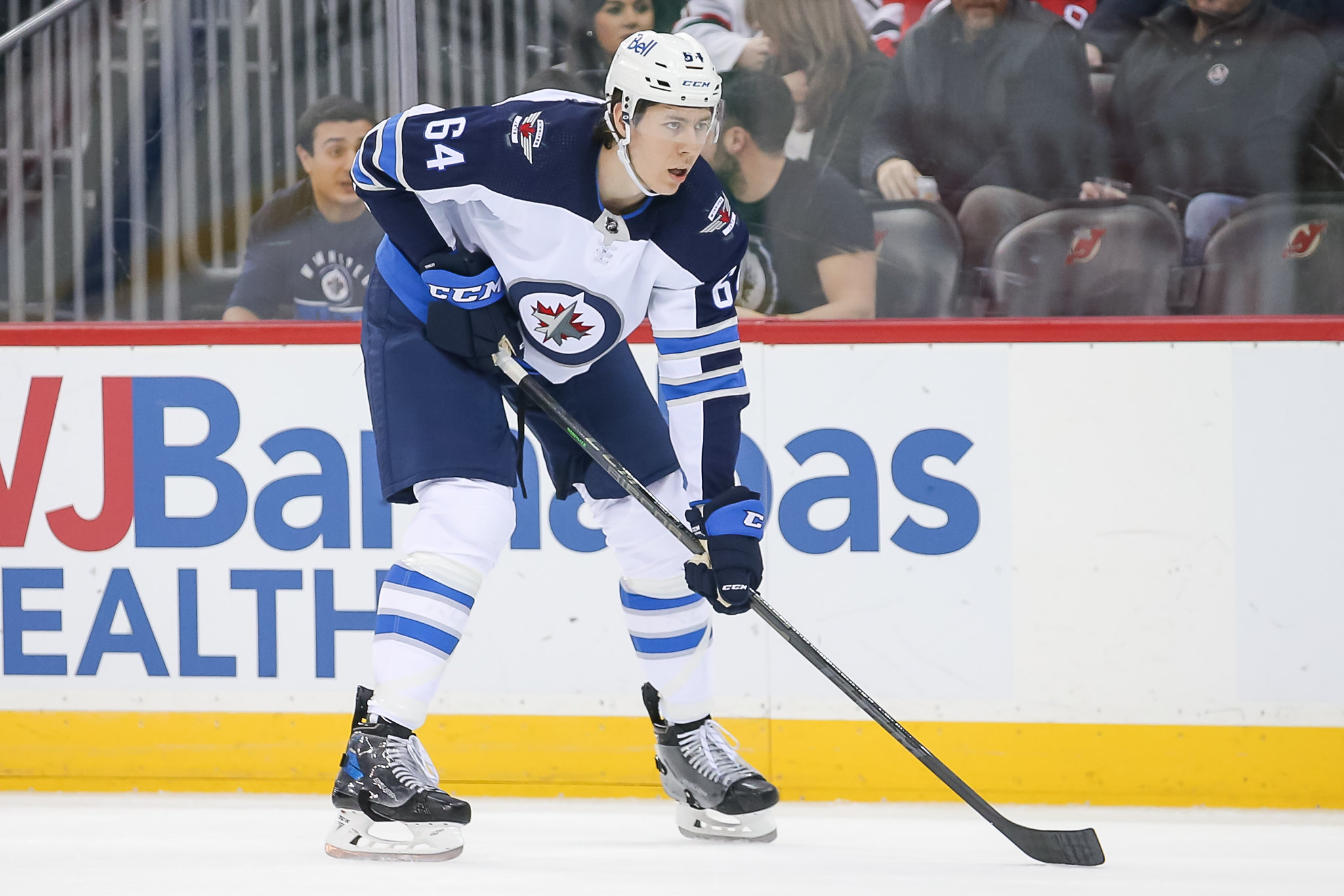
This gave some fans hope that Stanley was on the cusp of more. He regressed in 2021-22, though, and is not likely to develop into much more than a seventh defenseman. He is not the second coming of Zdeno Chara.
This author also considers Jack Roslovic as a miss. Selected 25th overall in 2015, the forward recorded 21 goals and 67 points in 180 games over four seasons, but could never permanently crack the Jets’ top six despite being given opportunities.
One can certainly argue that was more a testament to the Jets’ strength up front than an indictment of Roslovic’s skill. However, one cannot argue that his tenure with the team didn’t end on a sour note. By summer 2020, he was disgruntled with his role and refused to sign a qualifying offer as an RFA. As a result, he did not report to training camp.
The holdout forced Cheveldayoff’s hand, and Roslovic was included in the blockbuster trade that sent Patrik Laine to the Columbus Blue Jackets in exchange for Pierre-Luc Dubois in January, 2021.
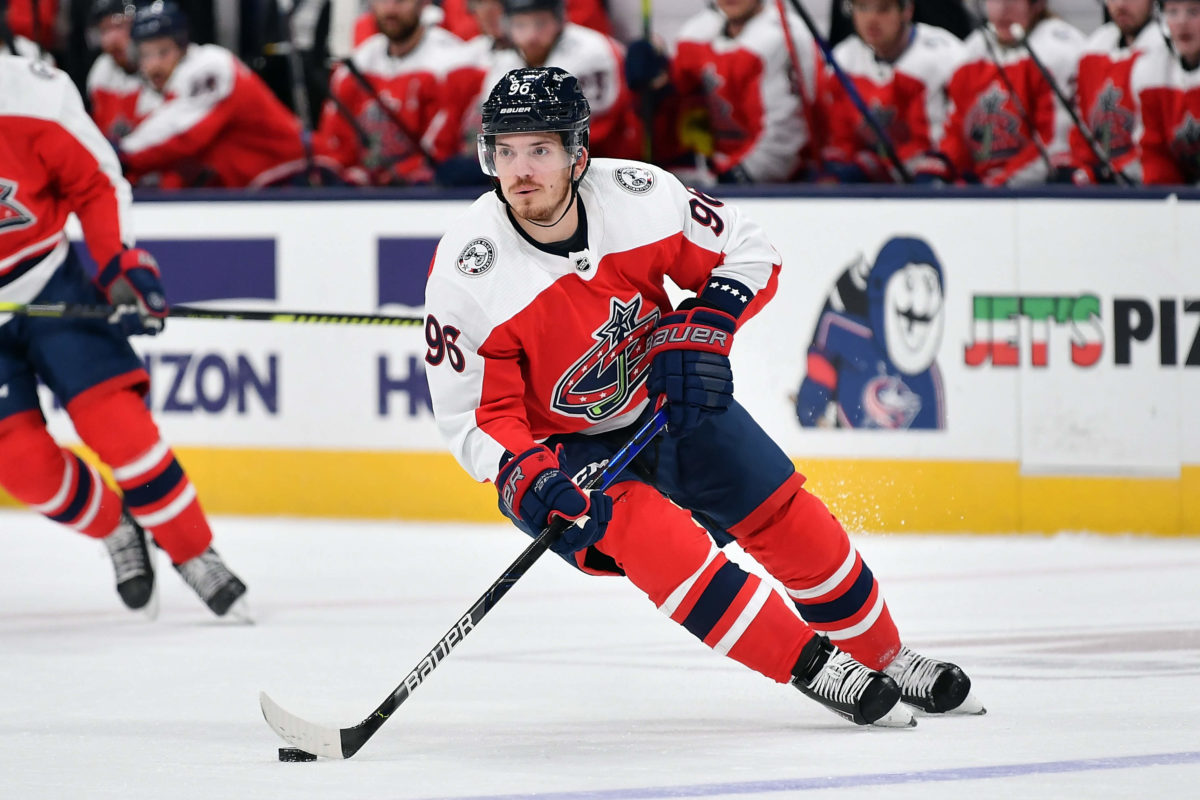
Roslovic has had more success in his hometown, recording 34 points in 48 games in 2020-21 and 45 points in 81 games last season. He was this year’s Blue Jackets’ nominee for the King Clancy Memorial Trophy.
Try to Win Now or Stockpile Prospects? That’s Cheveldayoff’s Dilemma
There’s no doubt Cheveldayoff values his draft picks. He has always preached a “draft and develop” strategy and much of the team’s core is made up of homegrown talent (Kyle Connor, Nikolaj Ehlers, Connor Hellebuyck, Adam Lowry, Josh Morrissey, and Mark Scheifele, among others.)
He has traded a first-rounder just twice: in 2018 for Paul Stastny and in 2019 for Kevin Hayes. The former deal was a great move that established a relationship with the veteran forward and opened the door for a second tenure two year later, while the latter was a mistake and did not move the needle for the Jets in the postseason at all.
This year could be the first time he trades two at once. It’s not a sure thing by any means, but it’s also not ridiculous to consider the possibility he packages the first-rounders together and sends them away in exchange for an established forward of defenceman.
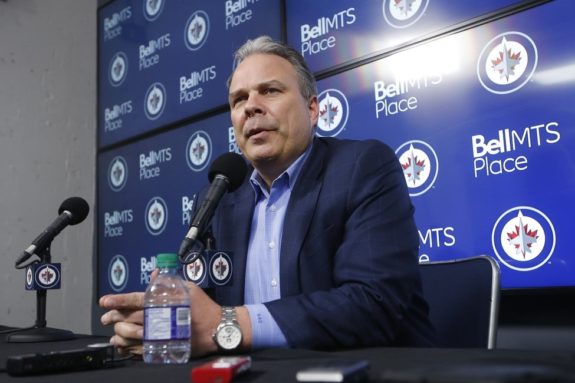
It all depends on whether Cheveldayoff still views the Jets as capable of winning now. They came into the season considered by most to be a Stanley Cup contender, but underachieved and finished sixth in the Central Division and eight points out a the Western Conference Wild Card spot.
Cheveldayoff has said before that he owes it to his core players to do everything possible to help them reach Stanley Cup glory. His assurance in his end-of-season press conference that the Jets will remain a cap-ceiling team in 2022-23 indicates he believes the window to contend is still open.
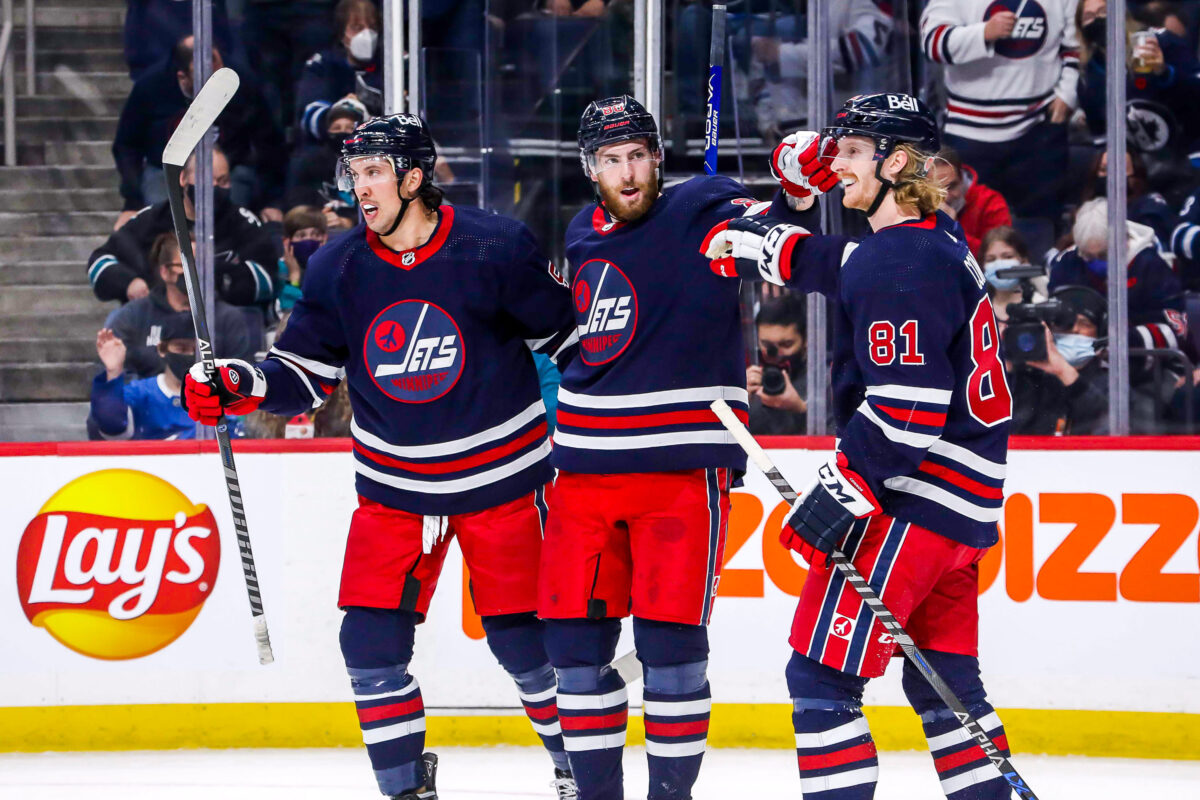
Cheveldayoff was given a vote of confidence by True North in the form of a three-year extension last month. He’s not on the hot seat, so internal pressure — his personal feelings of obligation to his players — will be greater than the external pressure to make a splash.
The 2022 draft class is not considered a particular strong one, but Cheveldayoff could decide to keep the picks, hoping they’ll be two more hits and that his team can return to contender status without additional outside help. This is certainly something worth keeping an eye on prior to the draft on July 7 in Montreal.
What do you think? Should Cheveldayoff trade the picks, or keep them? Comment below.
